Many junior lawyers face formidable challenges – from debt and the ‘paralegal trap’ to competition from technology. Junior Lawyers Division members reflect on their experience.
Christina Blacklaws, Law Society vice-president, opened this year’s Junior Lawyers Division (JLD) conference with a sobering statistic.
Although 62% of newly qualified solicitors are now female, only around 20% of those will go on to make partnership. The future of the profession is in good hands she noted – describing the diverse makeup of new entrants – but more must be done to encourage women to reach the top and take an active role in a business.
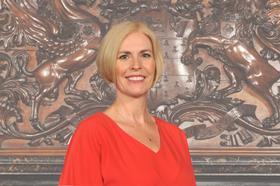
Her thoughts were echoed by Supreme Court president Baroness Hale, the conference’s keynote speaker. Hale said when she read law at Cambridge she was one of only six female students. Disproportionate female representation was to follow in later life too: her first pupil master ‘did not approve of women at the bar’.
The opening addresses set the tone for the day’s events which, as well as debating equality and diversity, also focused on improving the health and wellbeing of junior lawyers.
The JLD spent the months leading up to the conference asking members to fill out a resilience and wellbeing survey. Among the 1,000 responses, 39% of trainee solicitors reported suffering from mental health problems, more than double last year’s percentage (19%).
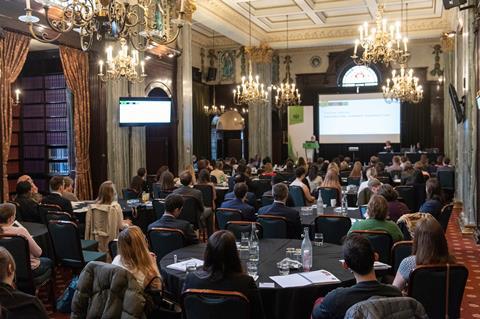
The survey also revealed that 90% of respondents had experienced stress in their role and that 26% of those experienced severe/extreme levels of stress, a figure unchanged from last year.
Elizabeth Rimmer, chief executive of legal charity LawCare, which operates a confidential helpline for lawyers, was among the speakers to address this. She noted that calls related to bullying and harassment had increased in the last year.
‘The helpline is staffed by lawyers who know what it’s like and the pressure you are under,’ she said. ‘We have to get the legal community talking about mental health and wellbeing – it must be on the agenda for law firms and chambers.’
Nick Bloy, a former employment lawyer and founder of consultancy company Wellbeing Republic, said lawyers should be mindful of their thoughts so that the brain does not interpret them as a threat. He said the aim should be to fit the scale from ‘just about surviving to thriving’.
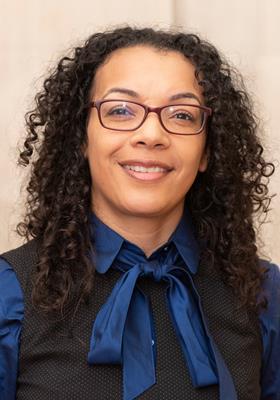
Adele Edwin-Lamerton, chair
My route into law was LLB at the University of Westminster, six months in a paralegal role at a small high street firm – which saw me doing everything from client visits in prison to unblocking the photocopier (and put me off my career ambition of being a lawyer that I’d had since the age of 13). There followed three years working for LexisNexis, four years at Sweet & Maxwell, where I did my LPC part-time and a training contract at Russell Jones & Walker (now Slater and Gordon).
I practise employment law and will continue to build my legal career in this area.
There are many big challenges facing junior lawyers today – LASPO, reductions to the MoJ budget, court closures, online hearings, the rise in the PI small claims limit (all of which threaten access to justice as well as encroaching on work available to junior lawyers), AI/LawTech and stress.
As a trainee in Manchester I joined the Manchester Trainee Solicitors Group which advertised a JLD forum in Leeds. I hopped on a train across the Pennines which turned out to be one of the best things I ever did.

Keith Etherington (now a district judge) was one of my supervisors during my training contract and he encouraged me to get involved.
We have already worked with the Law Society to provide guidance to the profession in areas once regulated by the SRA such as the trainee minimum salary and the graduate recruitment code, in addition to guidance on work experience, trainee retention periods, and supporting resilience and wellbeing in the workplace. So we offer our members a specific voice within the representative body. We also represent their interests to government and regulators, particularly the SRA.
We hold regular skills forums which help members get into the profession, and get on within it: there are opportunities to network on a local, national and international level.
The best moments of my professional life have been getting a result for clients at trial and also becoming a social mobility ambassador for the Law Society.
The worst involved photocopier jams, paginating bundles and compiling lists of documentation for disclosure. I consider reprographics my enemy.
My lawyer-hero is Lady Hale – so many ‘firsts’ and yet so down to earth.
Amy Clowrey, vice-chair
I studied the combined Law LLB and undergraduate Master of Law and Practice at the University of Huddersfield (Master of Law and Practice (MLP)), later going on to complete my full LLM. While in my second year of university I obtained an internship, paid for by the university, at a high street firm. Throughout university I worked part-time at the same firm as a legal assistant.
Thereafter I took a full-time position there as a paralegal before being offered a training contract.
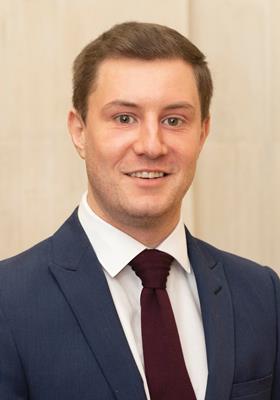
I started out in the personal injury sector but after a secondment in childcare I noticed that many of those who suffered mental health problems did so because they had suffered childhood abuse. It was then I decided I wanted to become a child abuse solicitor.
The biggest challenges facing junior lawyers today are quite simply financial strains and the fight to achieve a training contract.
I attended a JLD forum in Leeds (the same one that Adele, the chair, attended) and loved the sense of community and support offered by the JLD committee and speakers.
I offered my services assisting with the CV clinic at a London-based forum later that year and decided I would apply to be a part of the committee. Before being elected as vice-chair I spent two years as an executive committee member.
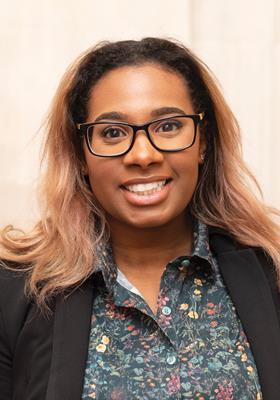
The JLD is the voice of junior lawyers. It is imperative that junior lawyers have a voice to ensure that they are not exploited in the workplace. The JLD lobbies for causes such as this.
A great example of this is the recent Resilience and Wellbeing Survey and Report which highlighted the need to support the mental health of junior lawyers.
The JLD’s job is to support and promote the (approximately) 70,000 junior lawyers we represent. In addition to this, the JLD offers a community for like-minded junior lawyers to develop.
The worst aspect of my life in law was trying to secure a training contract and the constant financial worries associated with qualifying as a solicitor. The best was qualifying as a solicitor and securing a job in the area of law which I hope to build my career in.
Lady Hale is my lawyer-hero. She has given women from all walks of life the knowledge that they can achieve.
Adam Hattersley, executive committee
I read Law at the University of Sheffield before taking the LPC in my home town of sunny Manchester. I am a real estate finance solicitor, so look forward to establishing myself within this field throughout my career.
I attended a JLD forum in Manchester before running as the city’s representative. The JLD gives junior lawyers a voice in the legal profession, promoting their interests and concerns. Our biggest challenge as junior lawyers is increasing competition as the sector streamlines with technological advances.
My best professional moment was getting a training contract. The worst was the filling in of the applications to get one.
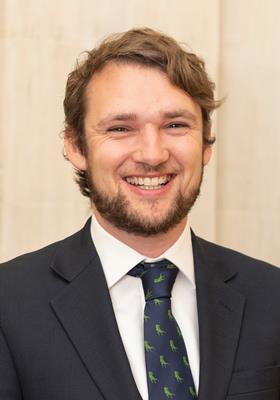
The property lawyer John Nattrass is my lawyer-hero.
Charlotte Lakin, executive committee, student representative
I studied a thick-sandwich law degree at Brunel University, spending my third year working at a firm of solicitors. I then went on to study the LPC part-time at BPP.
I am keen to spend more time practising commercial law.
The biggest challenge for LPC students and graduates is finding a training contract. The trainee minimum salary and notice period for retention is also a big concern for our members and we have been working hard to address this.
I got involved in the JLD when I attended a forum they organised on helping members secure a training contract. I met with one of the committee members who reviewed my CV at a clinic. From attending the event I came away more informed and keen to get involved. The JLD can advocate for our members and provide support. We respond to various consultations to ensure the voices of our members are heard.
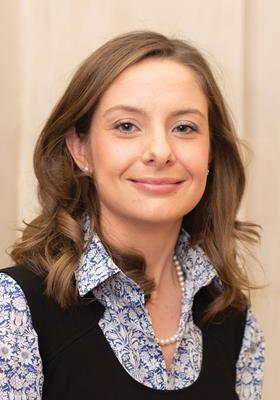
The best moment in the law is getting a good outcome for your client. It’s rewarding when your hard work pays off. The worst is time-recording – a problem I have not had to deal with yet in-house!
James Kitching, executive committee
I did Politics and American Studies at Nottingham University with a year abroad at Reed College in the US studying politics and history. I then did the GDL and LPC at Bournemouth.
I’m a corporate solicitor and I want to continue to focus on tech and build a specialism in it. LawTech and the redefining of what it means to be a lawyer is the biggest challenge facing junior lawyers. I was involved with my local JLD (South Hampshire) and then moved from there to the national committee. Junior lawyers are the future of the profession. The JLD gives them a voice.
The struggle to get a training contract was the worst thing about my time in law. Getting one was the best. My lawyer-hero is Atticus Finch.
Laura Uberoi, council member, solicitors 0-5 years’ PQE
I did a Law degree at Cambridge University, a master’s at Melbourne University and my LPC at Kaplan Law School. I am a solicitor in the Banking Team at Farrer & Co and am building my career in advising both lenders and borrowers on financing transactions, specialising in financing real estate and assets such as aircraft, yachts and art.
The change in demographic of a junior lawyer is a major challenge – the numerous hurdles to qualification mean that the average age of a newly qualified solicitor in 2017 was 29. We need to challenge the perception that junior lawyers are ‘young’ and carefree, and instead be alert to the challenges and stresses facing our juniors.
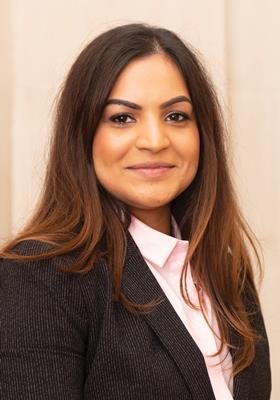
I became involved with the JLD when on secondment to the legal team in a large bank. I became keen to increase engagement between all junior solicitors developing their careers, regardless of whether in private practice, in-house or otherwise. The JLD can be a powerful voice advocating on behalf of the future of the profession.
The worst thing about my time in the law so far has been seeing the numbers of excellent law students struggling to find training contracts. The best (by far!) is supervising trainees and work experience students, which enables me to give future lawyers an insight into the work that I love and also ensure that I can pay back all of the time and efforts my mentors have given (and continue to give) to me.
My lawyer-hero is Professor Tim McCormack – one of the world’s leading experts on international humanitarian law. I moved all the way to Australia just to do my master’s under his teaching.
Manda Banerji, executive committee
I studied Biology at Nottingham University. I then took a year out and worked for E-ON before completing the GDL and LPC at Nottingham Law School. I am a commercial dispute resolution solicitor. I hope to continue to build on a specialism in construction disputes.
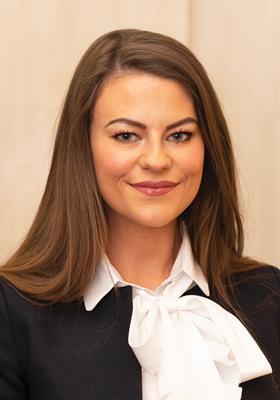
For junior lawyers who have not yet qualified, manoeuvring the minefield that is the search for a training contract remains the toughest challenge.
I was involved with my local JLD (Nottingham) and then got involved with the national committee and subsequently the executive committee. The JLD campaigns for and gives a voice to its members.
Trying to secure a training contract was the worst bit of my time in law so far. Qualifying remains the highlight, even though three years have passed since then.
Prisca Wharton, council member for LPC students and trainees
I studied German with Italian at Warwick University and then enrolled on the GDL. I undertook an LLM in International Corporate Governance and Financial Regulation at Warwick University. I started my training contract alongside the LPC in September 2016, qualifying in 2018.
Stress and mental health, adapting to tech and social mobility are major challenges facing junior lawyers.
I joined the Manchester Trainee Solicitors Group, where I’m now sponsorship director. I loved it and ran for the Trainee Solicitors/LPC students seat on the Law Society Council.
The JLD is good for networking, friendships, education/training and support. The best parts of my time in law have been my training contract and being elected to the Law Society Council. The worst part – exams.
Helena Kennedy is my lawyer-hero.
ALL HALE: JUNIOR LAWYERS HEAR THEIR HERO
‘The world is not always as it appears to be through the eyes of barristers,’ president of the Supreme Court Barone Hale (pictured) told an audience of junior lawyers at the Junior Lawyers Division annual conference.
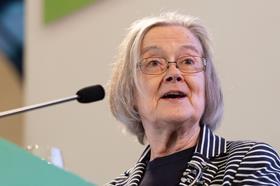
In a keynote speech that focused on equality and diversity, Hale stressed the importance of a judiciary that was balanced for social background as well as gender and ethnicity. One in five High Court judges are women, she pointed out. Even fewer are solicitors. ‘Something needs to be done about this,’ she said.
Hale also had public funding cuts in her sights, pointing out to the audience that women had been disproportionately harmed by legal aid cuts.
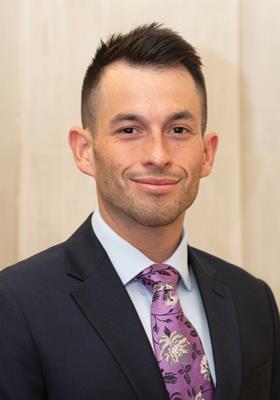
Rick Thomas, executive committee
I did a Computer Science degree, GDL, LPC and a training contract with Shoosmiths. I’ve already qualified into corporate but particularly enjoy cross-border transactions.
The biggest challenges facing junior lawyers today are pay inequality, mental wellbeing, evolving technologies, budget cuts, the SQE – the profession is currently facing unprecedented challenges.
I got involved in the JLD through my local (Nottingham) branch. My exposure came during my time as chair of the NJLD.
For the JLD, anything is possible – we have a huge membership, a strong voice, and a proactive and engaged committee.
In the law, the hours can be tough at times. Travelling overseas has been the best experience.
My lawyer-hero is the ultimate corporate lawyer, Harvey Specter (from the US drama Suits).
Kayleigh Leonie, council member, solicitors 0-5 years’ PQE
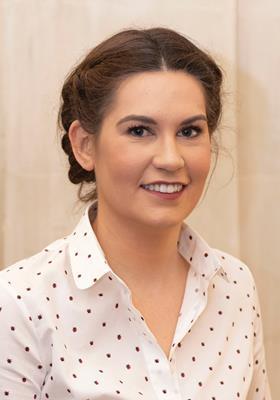
I studied A-level law and then Law with Business at university. I was a legal assistant before my LPC. I then started my training contract. I have specialised in employment law for over five years.
My primary concern for junior lawyers is the high levels of negative stress and mental ill-health experienced by junior lawyers.
I was a founding committee member of Sussex JLD in 2010 and have remained involved ever since. The JLD provides a great support network which I have always found very helpful.
The best thing in my professional life is getting results for clients. The worst is the uncertainty around obtaining a training contract and securing an NQ position.
My lawyer-hero is Cupcake Brown – I highly recommend her memoir A Piece of Cake.
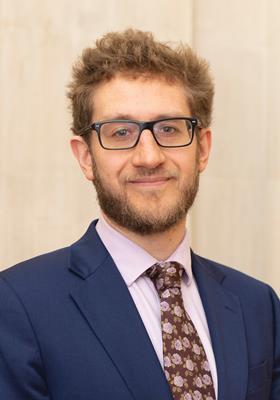
Greg Smith, executive committee
I spent about 10 years working at a royal medical college before changing career. I increasingly realised how effective an understanding of the underlying law could be in terms of changing health policy, and that led me to study the GDL. My interest was sufficiently piqued to change career, so I applied for a training contract and was (luckily) successful.
My background and interest lies in healthcare and I’m very lucky to work for a firm which largely specialises in that area. It’s a fantastic prism through which you can experience various areas of law – from employment, property, human rights, crime, commercial and regulatory work through, of course, to clinical negligence.
The biggest challenge facing junior lawyers today is getting through the door in the first place – and picking the right door beforehand.
I put myself forward for election to the JLD committee as a student representative while completing my LPC. It was very much a baptism of fire – I organised two conferences and contributed to several policy consultations while also taking various LPC exams. I either did something very right or something very wrong, as they invited me to stay for an extra year once my student seat was finished.
The JLD articulates rational and reasonable messages to decision-makers on behalf of its 77,000 members, and has (for example) been successful in altering the shape of the forthcoming SQE. We also organise free events for LPC students geared towards helping them to get training contracts, and have had very positive feedback so far.
It can be extremely frustrating when you don’t know the answer to something (but very satisfying to work it out). Attending a hearing at the High Court stands out as a highlight, although it’s early days of course.
My lawyer-hero is Baroness Hale, for her writing and talks on mental capacity legislation and the interface between mental health and human rights.
Nicola Wilding, executive committee
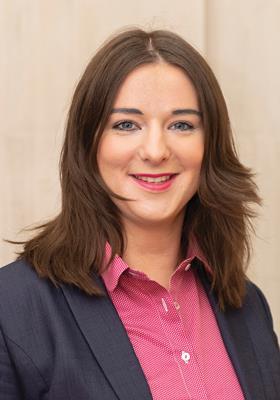
I did History at Manchester University. I then did the GDL and LPC at University of Law Chester. I’m a real-estate solicitor and hope to build my career with experience across the diverse types of commercial property transactions. I am a regional board member of CREation (a networking group for young professionals involved in property) and so am really learning about different types of property and thinking through how to assist clients in navigating the legal minefield to achieve their goals.
The paralegal trap is the biggest challenge facing junior lawyers today. It leaves many junior lawyers chasing the elusive training contract. Also what their role will be in the future with the emergence of LawTech and the changing role of a legal adviser for clients.
I was involved with my local JLD (Merseyside) and then moved from there to the national committee. The JLD is a great force for good on issues such as trainee minimum salary, transparency on recruitment of trainees and paralegals, and on mental health and wellbeing awareness (to name but a few).
The journey to secure a training contract is incredibly challenging but achieving a training contract is one of the happiest moments of my life.
Baroness Hale is my lawyer-hero.
Find more details on JLD events and get involved here.
A JLD forum event ‘Career developments skills for junior lawyers’ is on Saturday 8 September 2018. ‘Career development skills for students’ will be held on Saturday 6 October 2018























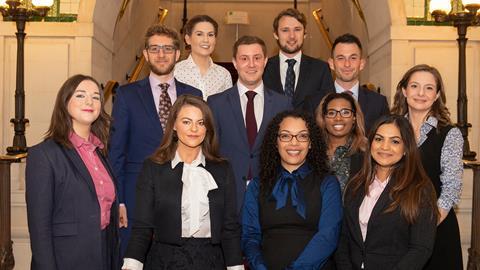




No comments yet